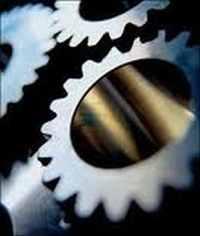Budget Highlights
Increased excise duty by 2 per cent on auto components
Retained the custom duty rates on auto components Basic customs duty on non-alloy HR and CR coils hiked from 5 per cent to 7.5 per cent. HR. This can lead to more pricing power for steel, and increase in steel cost of the auto sector
Basic customs duty on non-alloy HR and CR coils hiked from 5 per cent to 7.5 per cent. HR. This can lead to more pricing power for steel, and increase in steel cost of the auto sector
To Set up Rs 5,000 crore India Opportunities Venture Fund with SIDBI
Policy requiring Ministries and CPSEs to make a minimum of 20 per cent of their annual purchases from Medium & Small Enterprises (MSEs) approved. Of this, 4 per cent earmarked for procurement from MSEs owned by SC/ST entrepreneurs
Increase in excise duty by 2 per cent on two wheelers, three wheelers, cars and commercial vehicles
Excise duty reduced from 10 per cent to 6 per cent on specified parts of hybrid vehicles
Extended weighted deduction of 200 per cent for R&D expenditure in an inhouse facility for a further period of 5 years beyond March 31, 2012
Proposal to provide weighted deduction at 150 per cent of expenditure incurred on skill development in manufacturing sector
No change in the corporate income tax rates
Budget Expectations Not Met
Eliminate customs duty on alloy steel and secondary aluminum alloy
Reduce customs duty on SS wirecloth stripe from 10 per cent to 5 per cent and on washcoat from 7.5 per cent to 5 per cent used for manufacture of catalytic converters and their parts
To allow input credit on diesel procured for internal power generation & industrial use by manufacturing unit
To provide 100 per cent Cenvat Credit on capital goods in year of purchase. Currently 50 per cent Cenvat Credit is allowed on capital goods in year of purchase, balance 50 per cent to be availed in subsequent years
No interest for differential excise duty paid due to price increase subsequent to sale of goods in case supplies made to OEM's
Phase out central sales tax by either removing it or reducing it from 2 per cent to 1 per cent pending GST
Reduce corporate tax rate for domestic companies from current 32.445 per cent (including surcharge of 5 per cent and education cess 3 per cent) to 30 per cent
Increase depreciation rate on capital goods from current 15 per cent to 25 per cent to encourage investments. It has also recommended charging a higher depreciation rate for domestically manufactured capital goods
To extend weighted deduction for in house R&D that expires on 31st March 2012
To provide 100 per cent tax benefit on corporate social responsibility activities
Budget Impact
The
In respect of supplies to after sales/replacement market, there will be a pressure on margins.
The players have to hike prices to offset the hike in service tax and excise duties. But in certain segments this may not be possible to due to intense competition from unorganised players and imports. In such cases, the players have to partially absorb the increase in costs, and can only pass on a part of the hike.
In respect of auto component exports, we expect the Ministry of Commerce and Industry to hike duty draw back rates in June 2012, factoring in higher service tax and excise duty. In the process, the margins for exporters can actually improve, depending on the extent of hike in duty draw back rates.
Within auto component manufacturers, players catering to commercial vehicles may be in comparative better position owing to large allocation to infrastructure industry - the prime customer for CVs.
Nonetheless, government's focus on MSEs augurs well for the auto component industry as 70 per cent of the companies in industry are MSEs. Also extension of 200 per cent weighted deduction on in-house R&D will continue to encourage companies to work towards innovative auto parts- a need for the industry especially to be recognized globally. Further introduction of weighed deduction on expenditure incurred on skill development would benefit all the auto parts players as skill training is basic pre-requisite for these companies in manufacturing field.
Outlook
The hike in customs duty on HR/CR coils may lead to marginal increase in domestic prices. As regards hike in excise duties, it will be neutral for supplies to OEM, negative for supplies to replacement market, and turn positive for auto component exports.
The good news is the retention of the customs duty on auto parts at the existing levels. The countervailing duty equivalent to domestic excise duty is now 12 per cent from 10 per cent earlier. The auto component industry is already facing issues with growing imports as 21 per cent of domestic demand is met through imports. Though this step may not lower the imports, it at least wouldn't worsen the situation.











 © 2025
© 2025